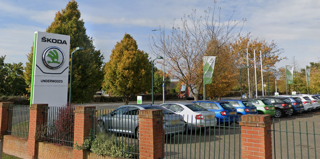Nissan is beginning a new research project at the University of California, designed to determine the marketability of non-polluting electric 'city cars'.
University employees will be driving 15 small Nissan Hypermini electric vehicles around the campus as part of the research programme. During a 12-month period, university researchers will be collecting a wide variety of data from the users, who will note their reactions to various vehicle attributes including size, range, comfort and charging. The drivers will also note the reactions of the local community to the vehicles.
"Getting solid, real-world data on how these unique vehicles are used is critical to our process of determining just what kind of electric vehicles are suitable for consumers," said Shigeo Ishida, president of Nissan Technical Centre North America.
In addition to donating the vehicles for the study, Nissan is providing most of the funding for the research led by the University of California Davis team of Ken Kurani, a research engineer at the university's Institute of Transportation Studies, and Tom Turrentine, an ITS-Davis research anthropologist.
"Nissan is providing us a valuable opportunity," Mr Kurani said. "Assessing the marketability of electric-drive vehicles is one of the Institute's primary missions. 'City cars' like the Hypermini represent a new idea for most consumers.”
The Nissan Hypermini is 8.3 feet long and 5 feet tall. The two-seater 'city cars' have little cargo room, but can be parked easily. Batteries are stored under the vehicle's floorboard.
Key features of the Nissan Hypermini include a 24kW motor and lightweight lithium-ion battery which recharges in up to four hours using a 200-volt charger, giving a driving range of 30-35 miles and a top speed of 62 mph.
Nissan is involved in three car-sharing programmes using Hyperminis in Japan. About 120 Hyperminis have been sold to support these programmes in the cities of Kyoto, Ebina and Yokohama.
















Login to comment
Comments
No comments have been made yet.